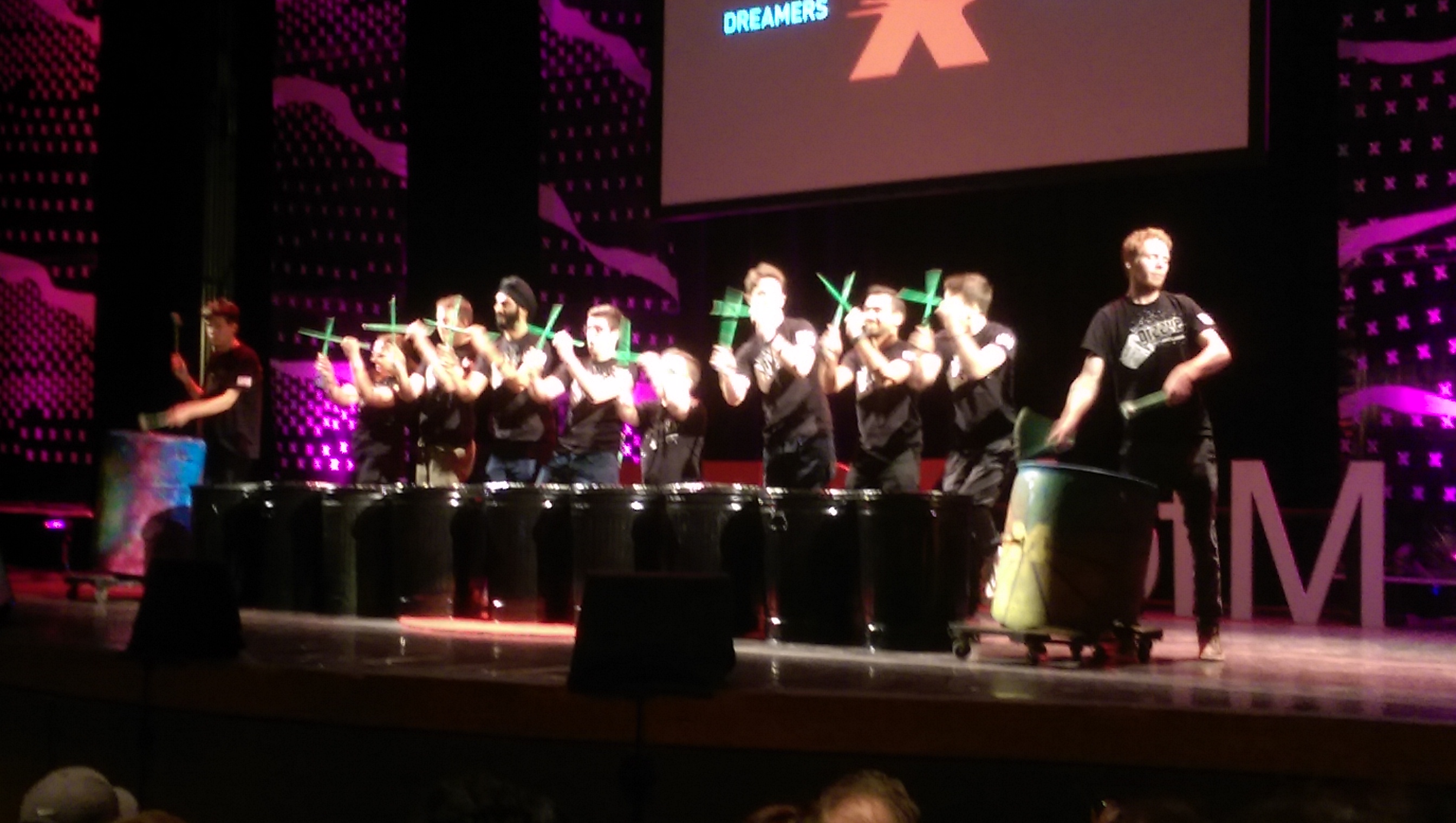Before I begin, here’s a link to the full conference in case you want to see it in its entirety.
TEDx UofM 2017 was as busy as ever, adding to the disruption part of this year’s theme: Dreamer’s and Disruptors. The army of volunteers running the independent conference have by now created a finely-tuned machine with the perfect mix of emotional roller-coaster, thought-provoking ideas, and blissful entertainment.

A student jazz band played in the minutes before the conference started. Their grooving, polished performance was a reminder that so many students at this university are talented and sound like professionals even before they’ve graduated.
Then the first speaker took the stage. Koen Vanmechelen came all the way from Belgium to talk about chickens. Specifically, about how breeding various species of chickens can be used to teach us important lessons about human nature.
Next was Sophia Brueckner, a brilliant woman who was a preeminent software engineer at Google until she suffered an injury that prevented her from using computers for two years. She argued that we as a society have developed a dichotomy of looking at technology as either a complete disaster, or as completely awesome. Instead, she asserted, we need to approach technology with critical optimism.
Ironically, Sophia Brueckner pointed out that making an app to solve all our problems is a fallacious idea, but the 2017 TEDx prize went to a student that developed an app called FoodFind. Meant for low income families to find free food, you have to wonder how many families can actually afford and use the smartphones that the app runs on.
Caitlin Holman proposed three things we need to learn: autonomy, competency, and belonging. Videogames, she suggested, provide all of this. With that in mind, she founded GradeCraft with the purpose of making learning more “gameful.”
Erika Newman–a pediatric surgeon–talked about both clinical and personal experiences with cancer. She was introduced to the lack of information on neuroblastoma when one of her patients asked her about the disease and she realized how she didn’t have any answers. The only surprise here was that she was having trouble getting funding from the NIH to treat the cancer using DNA repair mechanisms.
Rollie Tussing and the Midwest Territory Band played during the break. Although they were a stereotypical band you’d hear in Ann Arbor (at least one instance of well-manicured beard, a cello, and music reminiscent of vintage records), they were entertaining. Their sound was both stripped down and full, and antique without feeling archaic.
Next was Abdul El-Sayed, the current Executive Director of the Detroit Health
Department. In case that didn’t already tell you what a monumental task that entails, he cited several facts about the city of 600,000+ people such as a life expectancy of 70, an asthma rate of three times that of the rest of the country, and vision and other problems that far surpass the rest of Michigan. His argument was to think about pathophysiology in the social realm so that we can help people prevent health problems from developing. Abdul was also one of the best speakers of the night and I highly recommend watching his talk at least.
Next was Jeffrey Veidlinger, a historian who went to Eastern Europe to interview survivors of the Holocaust as a way of preserving their culture via understanding Yiddish. He challenged the audience to “Ask your loved ones about their life. Ask them about their dreams. Ask them about what they cherish.”
The most heart-wrenching talk of the night came from Scott Matzka, who was a talented athlete and is now a husband and father battling ALS. This is another talk to watch, and to check out his organization MyTurn.
Documentary filmmaker Sophia Kruz was the last speaker of the evening. Showing clips from her latest documentary Little Stones, she showed how sharing individual stories is important, as well as using culture to address problems in society. 



